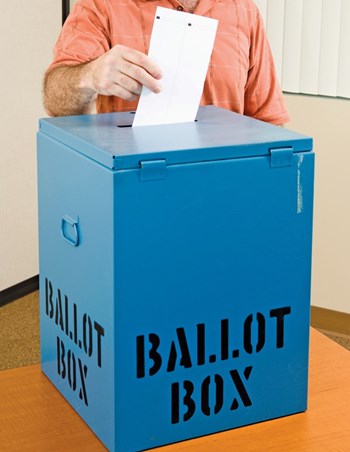
Usually, life in a condo goes on uneventfully on a day-to-day basis, with routine maintenance, elections, gardening, move-ins, move-outs and the like taking up most of its attention. Every once in a while, however, something comes up that points to things that need to be changed.
For example, a condo may have a no-pets bylaw, but then, new people move in who want the board’s blessingto have pets. Or laid-off owners may be setting up part-time home businesses and receiving clients into the early evening. Rules governing home businesses would be in order then.
Signs like these point to the need to periodic review of rules and bylaws to determine if they need minor tinkeringor even overhaul.But first, the board needs to understand the difference between a rule and bylaw.
Bylaws are listed with the condominium’s master deed, and are recordedwith the county register of deeds. Any changes to the bylaws, usually by amendment, typically require a 2/3 vote of owners, and sometimes, depending on the bylaw, a 2/3 vote of mortgagees.
Rules, on the other hand, don’t have to be recorded with the registry of deeds and can be changed by the board of directors alone – without a vote of unit owners.
Rules are generally seen as a means of carrying out or clarifying an existing bylaw. Outlawing pets on a property, for example, could not be accomplished by a rule – a bylaw would have to outlaw pets. If pets were allowed by thebylaws, the board could then enact or amend rules governing where they could be walked, their numbers, etc.
Why Change Now?
What are some typical reasons that a condo association suddenly decides to change its rules or bylaws? New England community association attorneys interviewed for this article gave a variety of reasons.
Robert Galvin of the Boston-based law firm of Davis Malm and D’Agostine, P.C., says changes could be considered when a condo’s population starts to change. For example, if an association finds itself with a lot of tenants (due to condo owners renting out their units), it may decide it has to enact additional regulations about how to deal with tenants.
Another reason might be merely thata condo might be 30 years old or so, and it finds that its bylaws are inadequate in the face of some current situations. After all, says Galvin, “The Massachusetts condo law dates from 1963.”
“I would say that pets and rentals [again, those tenants] seem to come up a lot,” says attorney Stephen Marcus of Marcus, Errico, Emmer & Brooks, PC, in Braintree, Massachusetts. “The newest reason some associations decide to amend their bylaws is to not allow smoking – not even within the units,” he says, citing a Colorado case. The case, Christensen and Sauve v. HeritageHills 1 Condominium Owners Association, took place in Jefferson County, Colorado and declared that a “condominium association may amend its declaration/master deed to prohibit smoking within units.”
Attorney Ellen Shapiro of the law firm of Goodman, Shapiro and Lombardi, LLC, in Dedham, Massachusetts, sees the situation with a sociological bent: “Some typical reasons bylaws change are generally that the community changes. You may have a community where there’s been a turnover of units, and a lot of young married people move in with children. Or it could be the opposite – young professionals have moved out, and empty nesters are coming in.”
Different population groups have different ideas about what should be allowed, such as whether there should be pet restrictions or how many units can be held for rental investor ownership, she says.
Rosemary Macero, a principal at Macero & Associates, P.C., in Boston, says, “You could end up with anything, depending on how forward-looking the person was who drafted the bylawsin the first place. A lot of times, you see regulations these days in regard to satellite dishes. Pets are also an issue.”
One problem that contributes to the need for change, she adds, is that when the condo law was new and condos were first being developed in the state, “developers would go to a lawyer and get a set of documents, and keep using them as ‘one size fits all.’” Later on, the board may realize that onesize doesn’t fit all, at least not for that particular development or building.
Reassessing Periodically
We’ve already mentioned that many condo associations’ bylaws and rules are either outdated or no longer fit that particular condo. How often should the board (or the attorney representing that board) re-examine or reassess theirrules or bylaws?
The attorneys interviewed for this article agree that there is a gap betweenhow often boards should re-examine their bylaws, and how often they actually do so.
“In an ideal world,” says Marcus, “it would be once a year. It would be verygood if it were done once every few years. We find some condos where 10 or 15 years after the rules are created, members come to me and say, ‘We were looking through the documents now and want to modernize them.’”
“When I have a new condo as a client,” says Galvin, “I read through thedocuments. I don’t suggest wholesale changes, except where [the problems are] really glaring.”
Shapiro says that every few years, boards should have an attorney reviewthe bylaws to see if they need any changes to bring them into compliance with current laws. Macero says that it’s a good idea for board members to familiarize themselves with the documents when they’re elected. Examining them should be done on a fairly regular basis, she says, although it doesn’t have to be once a year.
Knowing When It’s Time
How do board members know whento change or add a rule or bylaw?
One criterion that Marcus mentions is whether a “due purpose” is being served by the rule. If you have one problem resident, you shouldn’t changethe rules just to deal with that particular resident, he says. The association as a whole should be kept in mind.
Also, it’s wise to have a general idea whether the proposed bylaw change could get the support of 2/3 of the owners. Otherwise, it’s a waste of timeand money for associations to have their attorneys draft an amendment.
Finally, says Marcus, bylaws should be changed if the documents need to be clarified, and if, as mentioned before, they need to be brought up to speed to comply with state or federal legislation.
One example he mentioned is that of the Fair Housing Amendments Act (FHAA), which was passed in 1988 andbecame law in 1989. This act extends the protections of the federal Civil Rights Act of 1968, which prohibits discrimination on the grounds of race, sex, color, religion or national origin, to people with disability and families with children.
So, if a condo’s bylaws were drafted before FHAA was enacted, it would be strongly recommended to examine them for compliance.
Non-Trustees and Bylaws
One more question that comes to mind in terms of bylaws: Do non-owner residents – that is to say, tenants, have a say in any alterations, additions or revisions of their condo community’s bylaws?
The answer, according to all concerned, is that tenants are not necessarily entitled to a say –at least, not according to condo documents.
“I can’t think of such a situation,” says Shapiro, “except if you have a tenant who’s holding a proxy granted by the unit owner – perhaps someone who’s lived there 10 or 15 years and the owner feels the tenant knows more (about the community) than he does.”
However, that doesn’t mean that tenants should never be asked their opinion when it comes to making changes. For example, if a condo is putting on a new roof, and the roof work would directly affect the tenant who’s living in one of the units, the owner of that unit might ask the tenant for suggestions or whether certain aspects of the work might be a hardship. But in general, there’s no obligation to do so.
There may be some boards that take the opinions of tenants very seriously, and even solicit them. Typically, however, tenants don’t have the input that owners do into the condo association’soperations, for the simple reason that they don’t have the same stake in the building that the owners do.
Unit owners care deeply about their living space, and it’s up to the board tomake decisions to keep those owners happy. If it’s time for a change in your association’s bylaws or rules, be sure to consult an attorney to make any changes. The best way to go about keeping your rules and bylaws current is to read them closely and frequently.
Raanan Geberer is a freelance writer and editor living in New York City. New England Condominium Managing Editor Jim Douglass contributed to this report.






Leave a Comment